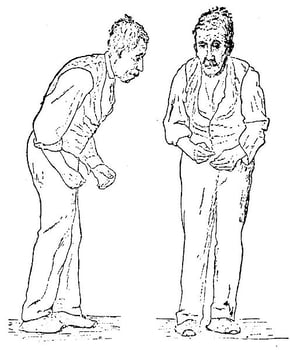The National Institutes of Health (NIH) recently awarded two large grants to University of Alabama researchers. A $2.5 million--four year--grant will support research into heart failure. A second, $2.3--four year--grant with be used to research treatment-resistant high blood pressure.
Read MoreTags: Bioresearch funding, Alabama, University of Alabama, University of Alabama Birmingham, UAlab, UAB, NIH funding, University of Alabama at Birmingham, BioResearch Product Faire, Bioresearch Grant, Cardiac Disease
According to an article for UAB News, 40% of individuals infected with HIV are not currently receiving antiretroviral therapy, which means their disease is not suppressed. The University of Alabama, Birmingham’s Center for AIDS Research recently partnered with state and local agencies in signing the Paris Declaration to eliminate the spread of HIV/AIDS by 2030. Birmingham is the 13th U.S. city to commit to achieving the Declaration’s goals.
Read MoreTags: Bioresearch funding, AIDS Research, Alabama, University of Alabama, University of Alabama Birmingham, UAlab, UAB, NIH funding, University of Alabama at Birmingham, BioResearch Product Faire, Bioresearch Grant, NIH awards 2017
Last year, the University of Alabama at Birmingham Comprehensive Cancer Center was awarded a five-year, $29 million grant for the National Cancer Institute. The Cancer Center now receives nearly $6M a year in NCI core funding and will continue to do so through 2021. In addition to this core grant, UAB CCC has received over $8.5M in research funding from the NCI during the first half of 2017. This brings their total NCI funding to $14.5 million.
Read MoreTags: Bioresearch funding, cancer research, Alabama, University of Alabama, Cancer Treatment, Cancer, University of Alabama Birmingham, UAlab, UAB, University of Alabama at Birmingham, Cancer Center, cancer researchers, fight cancer, cancer reserach, Bioresearch Grant, Comprehensive Cancer Center
Tags: Stem Cells, heart disease, Duke University, University of Wisconsin Madison, Alabama, UAB, AL, Southern Region, University of Alabama at Birmingham, bioengineering
Parkinson’s is a degenerative condition that affects over one million Americans - even greater than the number of those suffering from multiple sclerosis, muscular dystrophy and Lou Gehrig's disease combined. There is no cure, but this month researchers at the University of Alabama at Birmingham made two important breakthroughs for treating the disease. One group of researchers has discovered the cause of the negative side-effects of L-DOPA and a potential way to counter-act it. Another group of researchers have “discovered an interaction in neurons that contributes to Parkinson’s Disease and they have shown that drugs now under development may block the process.”

(Image of the University of Alabama, Birmingham courtesy of Jaymay via Wikimedia Commons)
Read MoreTags: Parkinson's Disease Research, University of Alabama Birmingham, University of Alabama at Birmingham, Parkinson's Disease, biomedical researh, Dr. Volpicelli-Daley, Dr. Standaert
 (Image courtesy of Wikimedia commons)
(Image courtesy of Wikimedia commons)
University of Alabama at Birmingham received a $29 million grant from the National Cancer Institute. This five year core grant will support six research programs at the UAB Comprehensive Cancer Center. The renewal of the Cancer Center Support Grant, the most prestigious federal grant that a cancer research and treatment program can earn, also extends UAB’s elite “comprehensive” designation. According to the UAB News website this designation is awarded for scientific excellence and the ability to integrate diverse research approaches in the fight against cancer.
Read MoreTags: Bioresearch funding, cancer research, Alabama, University of Alabama, Cancer Treatment, Cancer, University of Alabama Birmingham, UAlab, UAB, University of Alabama at Birmingham, Cancer Center, cancer researchers, fight cancer, 2016, cancer reserach, Bioresearch Grant, Comprehensive Cancer Center

(1886 Sketch of Person with Parkinson's by Sir William Richard Gowers Courtesy of Wikimedia Commons)
Researchers at the University of Alabama, Birmingham have discovered a potential new approach to reducing the damage done by Parkinson's disease. They found that suppressing a key cell-signaling pathway in the brain lessened the destructive inflammation and nerve degradation in the area of the brain affected by Parkinson’s. In the study, rats were used to model the disease by inducing an overexpression of a-synuclein, a protein that is abundant in the human brain. The accumulation of α-synuclein is a core feature of Parkinson’s disease. This accumulation leads to the activation of the brain's immune cells and the production of inflammatory signaling chemicals, which leads to neurodegradation. The rats that were then given a JAK/STAT pathway inhibitors (known as Jakinibs) did not have the immune response, the inflammatory activation, or the neurodegeneration that those that did not receive the inhibitor experienced.
Read MoreTags: Parkinson's Disease Research, Alabama, University of Alabama, University of Alabama Birmingham, UAlab, Birmingham, AL, University of Alabama at Birmingham, 2016, Parkinson's Disease
 Tuberculosis is a terrible disease that is characterized by a bad, sometimes bloody cough, and which could lead to other serious health problems, or even death.
Tuberculosis is a terrible disease that is characterized by a bad, sometimes bloody cough, and which could lead to other serious health problems, or even death.
Over 1.5 million people currently die from TB each year, and as many as one third of the world’s population is currently infected, according to the Centers for Disease Control and Prevention.
In an effort to combat this worldwide health concern, Michael Niederweis, Ph.D., and colleagues from the University of Alabama at Birmingham have made an important discovery. The scientists recently uncovered an important toxin called Tuberculosis Necrotizing Toxin (TNT) that resides within the pathogenic bacterium Mycobacterium tuberculosis and aids in survival and proliferation.
Read MoreTags: tuberculosis, Immunology, Alabama, Biology, 2015, disease research, life science research, UAlab, Birmingham, AL, Southern Region, University of Alabama at Birmingham, BioResearch Product Faire™
Iron is the most common chemical element found on earth, and it plays a key role in the biochemical processes of almost all organisms. Though iron is an important building block of life, it is also attributed to causing cellular damage when it is released into its free catalytic form. Researchers at the University of Alabama at Birmingham recently published a report in the Journal of Clinical Investigation which sought to help understand the relationship between the protein ferritin and kidney damage caused by this free iron. This study set a foundation for future research into potential treatments to prevent acute kidney injury.
Tags: 2014, 2013, Alabama, University of Alabama, Southern, BioResearch Product Faire Event, UAlab, Birmingham, University of Alabama at Birmingham
Researchers at the University of Alabama at Birmingham, led by Donald Buchsbaum, PhD, received a $2.2 million grant from the NIH this year to study pancreatic cancer. According to the University of Alabama website, Dr. Buchsbaum is quoted as saying of his research goals: "My interests are focused on the use of monoclonal antibodies that bind to the tumor necrosis factor-related apoptosis-inducing ligand (TRAIL) receptors for cancer therapy in combination with chemotherapy agents and radiation.” Dr. Buchsbaum and his research team began receiving funding for their studies of pancreatic cancer six years ago, though funding was limited at that time. The NIH RePORTER sheds light on the project that has received $2.2 million from the NIH this year in the proposal’s abstract:
Tags: 2014, 2013, Alabama, University of Alabama, Southern, BioResearch Product Faire Event, UAlab, Birmingham, AL, NIH funding, NIH grant, NIH award, University of Alabama at Birmingham

